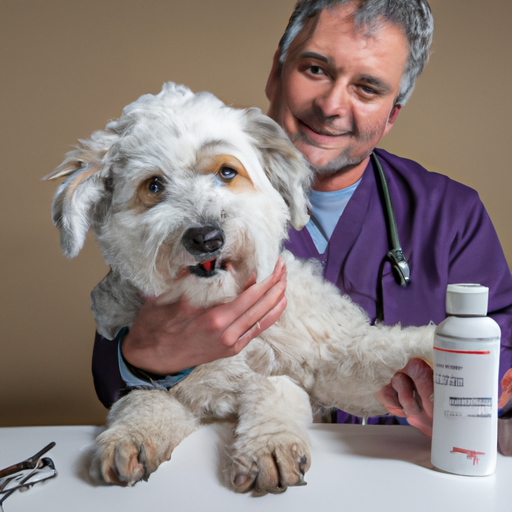As a loving caregiver for your furry friend, it’s essential to understand the medication that vets prescribe, especially when it’s a drug like Deramaxx. This guide provides you an in-depth understanding of Deramaxx, its uses, side effects, dosage, and more.
1. Understanding Deramaxx
Deramaxx, known scientifically as Deracoxib, is a non-steroidal anti-inflammatory drug (NSAID) specially formulated for dogs. It’s primarily used to control pain and inflammation associated with osteoarthritis and postoperative pain following surgeries, especially orthopedic procedures.
2. How Does Deramaxx Work?
Deramaxx works by inhibiting the enzyme cyclooxygenase (COX), which is involved in the production of prostaglandins.
| Prostaglandins | Function |
|---|---|
| Prostaglandins | Responsible for causing inflammation and pain in the body |
By reducing the production of prostaglandins, Deramaxx alleviates pain and inflammation in dogs, helping them lead a more comfortable life.
3. Dosage and Administration
The dosage and administration of Deramaxx vary according to the dog’s weight and the condition being treated.
- For osteoarthritis pain and inflammation:
- 0.45-0.91 mg/lb as a single daily dose
- For postoperative orthopedic pain and inflammation:
- 1.4-1.8 mg/lb as a single daily dose
Always remember, it’s crucial to follow your vet’s instructions when administering Deramaxx to your dog.
4. Possible Side Effects
Like all medications, Deramaxx can have potential side effects. While most dogs tolerate the medication well, some may experience:
- Vomiting or diarrhea
- Changes in appetite
- Changes in behavior (such as lethargy)
- Skin reactions
In rare cases, Deramaxx can cause serious side effects like gastrointestinal ulcers, liver and kidney dysfunction. If you notice any unusual symptoms in your dog, contact your vet immediately.
5. Precautions and Interactions
Before starting Deramaxx, inform your vet if your dog has any history of liver disease, kidney disease, or stomach ulcers. Additionally, Deramaxx may interact with other medications, like:
- Other NSAIDs (e.g., aspirin, carprofen)
- Corticosteroids (e.g., prednisone)
- Certain diuretics
- ACE inhibitors
Always keep your vet informed about any medication or supplement your dog is currently taking.
Frequently Asked Questions
Q1: Can I give my dog Deramaxx without consulting a vet?
No, Deramaxx is a prescription medication and should only be used under the supervision of a vet.
Q2: Is Deramaxx safe for all dogs?
While Deramaxx is generally safe for most dogs, it may not be suitable for dogs with certain health conditions. It’s crucial to discuss your dog’s health history with the vet before starting any new medication.
Q3: Can Deramaxx be given with food?
Yes, Deramaxx can be given with or without food. However, giving the medication with food can minimize potential stomach upset.
Q4: What should I do if I miss a dose?
If you miss a dose, give it as soon as you remember. If it’s close to the time for the next dose, skip the missed dose and continue with the regular schedule.
Q5: Can I use human NSAIDs instead of Deramaxx for my dog?
No, human NSAIDs can be toxic to dogs. Always use medication prescribed by a vet.
Remember, as a caregiver, your dog’s health and wellbeing are in your hands. Understanding the medication you’re giving them is the first step towards ensuring their comfort and happiness.



